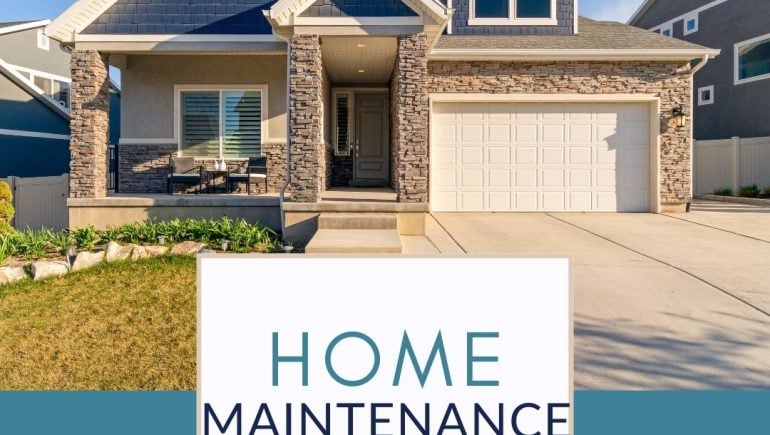Preparing for Common Home Maintenance Issues with Property Meld Maintaining your home property can feel...

Preparing for Common Home Maintenance Issues with Property Meld
By Guest Post
Wednesday, July 12th, 2023 @ 6:09pm
Preparing for Common Home Maintenance Issues with Property Meld
Maintaining your home property can feel overwhelming, mainly because of its unpredictable nature. However, Property Meld has gained valuable insights over the years in the field of property maintenance. By implementing these 6 best practices, you can protect your assets and minimize costly emergency repairs.
First, familiarize yourself with the most common maintenance issues that tend to arise almost daily, such as plumbing, electrical, and roof problems. Be prepared to handle these issues by having a well-defined plan and ensuring that emergency contact numbers are readily accessible when assistance is required. Make sure you have the tools and supplies to fix minor problems before they become more significant. Lastly, keep your property well-maintained to prevent any major issues from occurring in the first place. Regularly inspect your property and address any problems as soon as possible. By taking the time to prepare for these common property maintenance issues, you can save yourself time, money, and stress.
1: Schedule routine inspections of properties
One of the best ways to prepare for common property maintenance issues is to catch them before they occur. Schedule routine property inspections of your home to identify any issues and schedule a repair if needed. In doing this, you can catch minor problems and get them fixed before they lead to a more significant maintenance emergency. Saving you time and money on emergency repairs and ensuring safety in the home. In addition, you can schedule routine home maintenance tasks like replacing air and furnace filters and flushing water heaters to help improve the longevity of your appliances.
2: Learn Basic Home DIY Skills
While it is true that some people are more handy than others, all homeowners should learn some basic home DIY (do-it-yourself) skills. While some things are better left to the professionals, understanding some basic DIY skills can be incredibly beneficial in the long run. Familiarize yourself with simple tasks such as changing light bulbs, replacing air filters, fixing leaky faucets, caulking windows, and unclogging drains. You can watch tutorials online or talk to a professional at your local hardware store to learn these skills. Knowing how to handle these minor repairs can save you time and money and empower you to address issues quickly without waiting for a professional to come in and fix something you could have done yourself with the proper knowledge.
3: Create a Tool Box of Essentials
Along with learning basic home improvement skills, all homeowners should also have a toolbox of essential tools. With a toolbox handy, you can make quick fixes around the house. For beginners, we recommend gathering the following supplies for your toolbox.
Building a beginner’s homeowners toolkit is an excellent step towards self-sufficiency and addressing minor repairs and maintenance tasks around your home. Below is a list of essential tools and supplies to include in your toolkit:
- Hammer: A versatile tool for various tasks, such as hanging pictures, assembling furniture, and light carpentry work.
- Screwdriver set: A set with different sizes and types of screwdrivers (flathead and Phillips) will help you tighten or loosen screws in furniture, appliances, and fixtures.
- Adjustable wrench: Useful for tightening or loosening nuts and bolts in plumbing fixtures, furniture, and other objects.
- Pliers: A basic set of pliers, including slip-joint pliers and needle-nose pliers, will come in handy for gripping, cutting, and bending wires, as well as handling small objects.
- Tape measure: Essential for measuring distances, ensuring accurate fittings, and taking dimensions for furniture, artwork, or home improvement projects.
- Utility knife: Ideal for cutting through various materials, such as cardboard, packaging, and lightweight materials, during repairs and DIY projects.
- Level: A small bubble level ensures that objects like pictures or shelves hang straight and level.
- Allen wrench set: These L-shaped wrenches are commonly used for assembling furniture, tightening screws in bicycles, and working with other items that require hexagonal screws.
- Flashlight: A reliable flashlight will help you navigate dark areas during power outages or when working in dimly lit spaces.
- Safety equipment: Safety goggles, work gloves, and a dust mask should be included to protect your eyes, hands, and respiratory system during projects that involve dust, chemicals, or potential hazards.
- Stud finder: This tool allows you to locate studs behind walls, which is crucial when securely hanging heavy items or installing shelving.
- Drill/driver: While not essential for a beginner’s toolkit, a cordless drill/driver can be handy for drilling holes and screws in various materials.
- Assorted hardware: Keep a selection of commonly used hardware items, such as nails, screws, picture hooks, wall anchors, and electrical wire connectors, for quick repairs and hanging items.
- Duct and electrical tape: These have multiple uses, including temporary repairs, bundling wires, and sealing leaks.
- Step ladder: A stable step ladder will help you reach high places safely, such as changing light bulbs or accessing storage areas.
- Extension cord: An extension cord with multiple outlets will provide flexibility when working in areas with limited electrical access.
- Toolbox or storage case: Keep all your tools organized and easily accessible in a sturdy toolbox or storage case.
Remember to handle tools carefully, follow safety guidelines, and consult professionals for tasks requiring specialized expertise. As you gain experience and tackle more projects, you can gradually expand your toolkit to meet your specific needs.
4: Research reputable service providers
Not all home maintenance tasks can be tackled on your own, so it’s essential to have a list of reputable service providers on hand. Research and create a network of trusted plumbers, electricians, HVAC technicians, and other professionals who can assist you in times of need. Seek recommendations from friends, family, and online reviews to ensure quality service.
5: Stay on top of seasonal maintenance
Different seasons bring different maintenance requirements. Prepare for each season by performing appropriate preventative tasks. For example, clean and inspect your gutters before the rainy season, check your HVAC system before summer and winter, and test your carbon monoxide and smoke detectors regularly. Staying proactive will help you avoid potential issues and keep your home comfortable year-round. Maintenance softwares like Property Meld can help you schedule repairs in advance so seasonal maintenance doesn’t get overlooked.
6: Keep emergency supplies ready
Prepare an emergency kit for your home, including items such as flashlights, batteries, first-aid supplies, and basic tools. In the event of a power outage or other unforeseen circumstances, having these supplies readily available can provide comfort and security.
All the items listed in this article are not only useful for homeowners but professional property managers as well. Scheduling routine maintenance will help keep your properties in peak condition longer, and help you avoid costly maintenance emergencies. To learn more about how dedicated maintenance software can help you manage and coordinate property maintenance, speak to a Property Meld expert.





